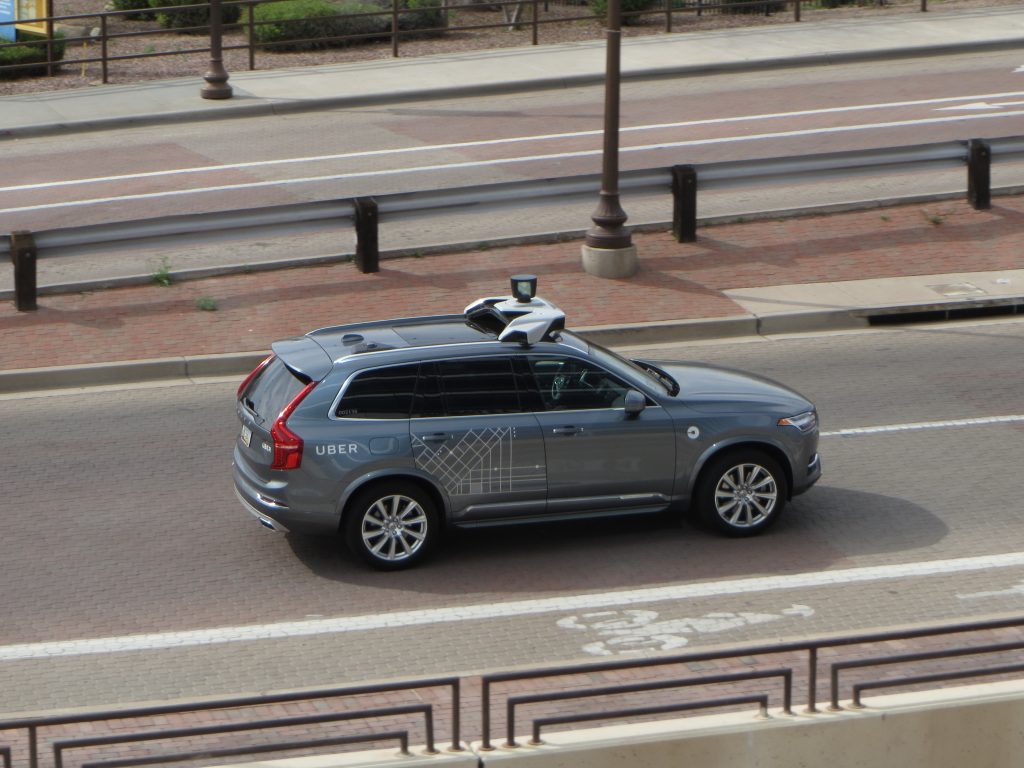Automakers and tech companies are pushing a bill through Congress that would handcuff local governments' ability to regulate self-driving vehicles on city streets. Now city transportation officials are demanding a role in drafting legislation before it's too late.
The stakes are high. Shaping autonomous vehicle systems to meet city needs could cut congestion, reduce traffic deaths and injuries, and free up scarce urban space for more pressing needs than car storage. Or the regulatory framework could introduce new hazards and place additional restrictions on people's movement while walking or biking.
Legislation is moving quickly through Congress. The House of Representatives held a June 27 subcommittee hearing on a package of 14 bills regulating self-driving cars, then consolidated them into a single bill, which a House subcommittee voted for last week 54-0. The bill is on its way to the House floor while the Senate prepares similar legislation.
The House bill, HR 3388, would allow each car manufacturer to test up to 100,000 self-driving vehicles on public roads, a 40-fold increase from the 2,500 allowed today. Vehicle manufacturers would self-certify their autonomous vehicles with the U.S. Department of Transportation, without an independent review of the technology's safety.
The bill would also prohibit state and local governments from regulating the "design, construction, mechanical systems, hardware and software systems, or communications systems" of autonomous vehicles. That would render the more hands-on regulations in states like California obsolete.
The "Self-Driving Coalition for Safer Streets," which is backed by the tech and auto industries, argues the legislation is a key step to forming a "single, national framework for self-driving vehicles."
But the bill has raised red flags with city officials, environmental watchdogs, and advocates for safe walking and biking. Transportation for America, the Natural Resources Defense Council, the National Association of City Transportation Officials, and the National League of Cities have banded together to call for changes to the bill.
"The draft bill handcuffs our transportation leaders, revoking their ability to unlock the transformative potential from this innovative technology," NACTO said in a statement. "This is akin to trusting the fox to protect the hen house, and would clear the way for automakers and tech companies to deploy hundreds of thousands of automated vehicles without adhering to stringent safety standards."
[Update: Some but not all of NACTO's concerns about the draft bill were addressed before it passed out of committee. The amended bill preserves the ability of local governments to regulate several aspects of autonomous vehicle operation, but NACTO says that language remains too vague.]
Representatives for cities haven't been at the table as the regulations take shape. The legislation may mean that cities lose "the ability to regulate their own roads," according to Russell Brooks at Transportation for America.
Another big concern is the vagueness of the bill's language, which leaves too much room for interpretation. The bill prohibits the sale of fully autonomous vehicles, for example, but according to Brooks that could leave open the possibility that unproven technology will be used by the general public as part of a commercial "testing scenario," like the one Waymo launched earlier this year in Arizona.
The city-aligned coalition is calling for better representation and transparency. The groups want guaranteed seats for state and local governments on the automated vehicle advisory council proposed in the House bill, and a legal mandate that data on self-driving car performance will be open to the public.
This post was updated on August 7, 2017, to reflect the fact that the House bill was amended before passing out of committee.





